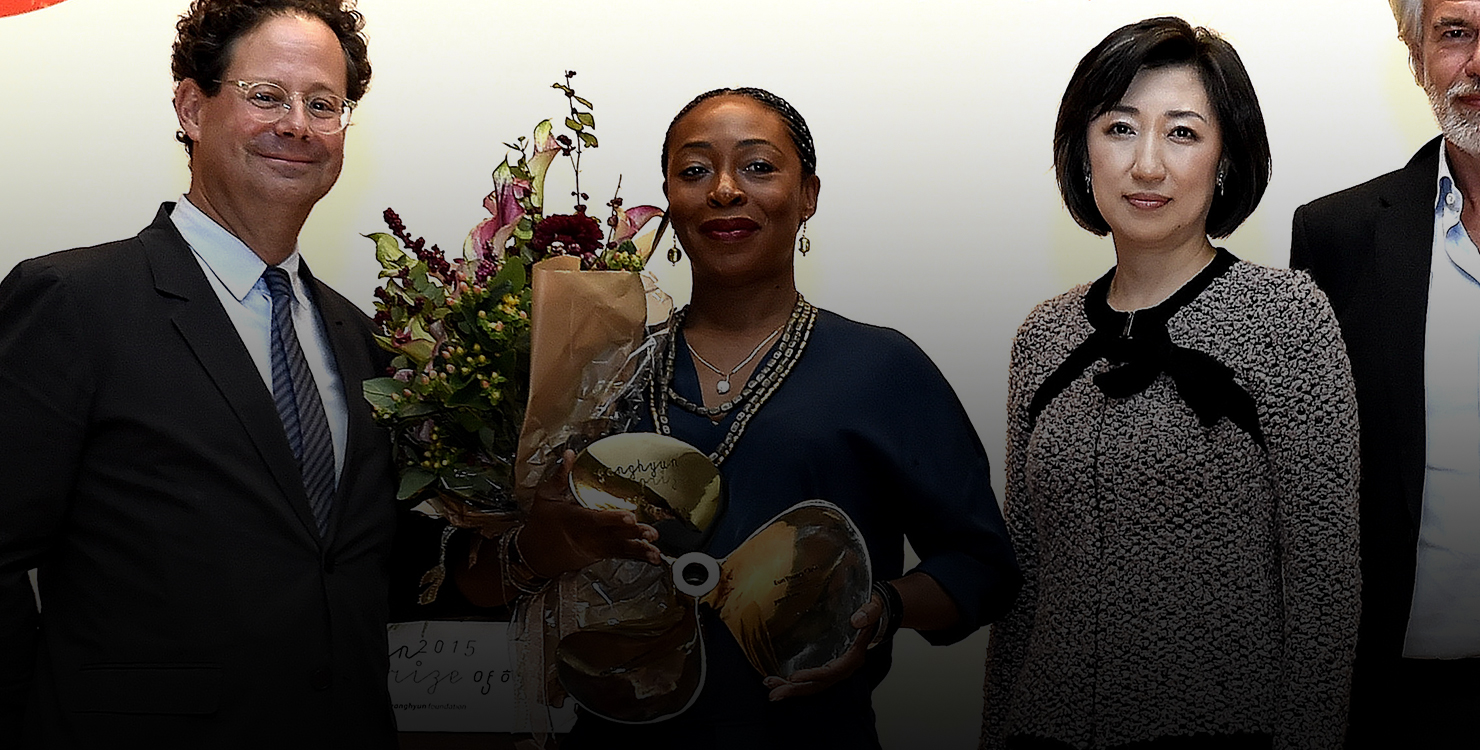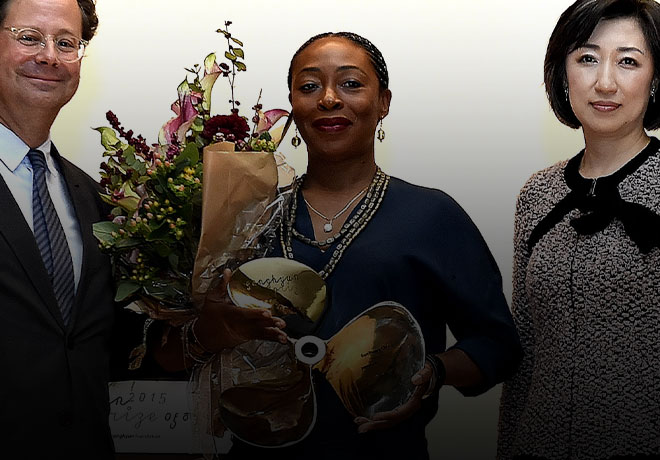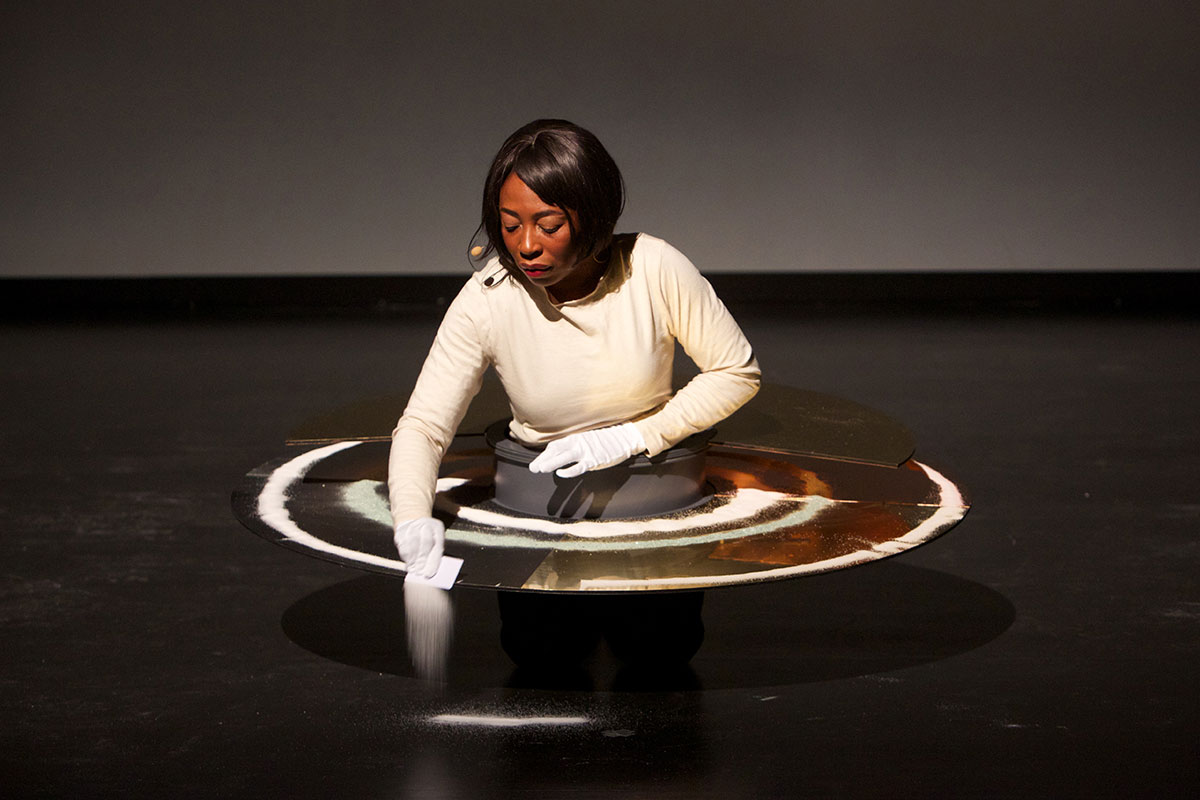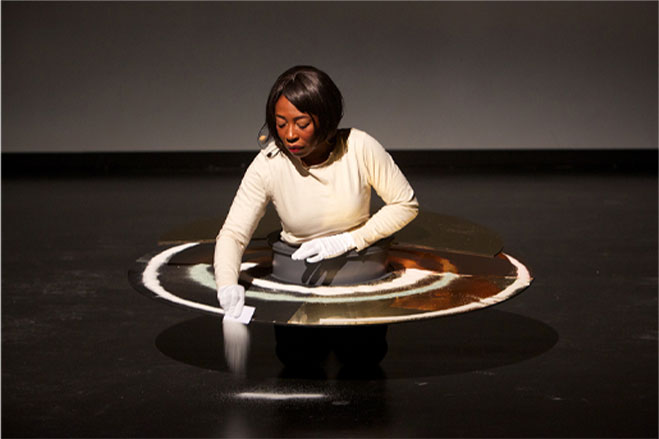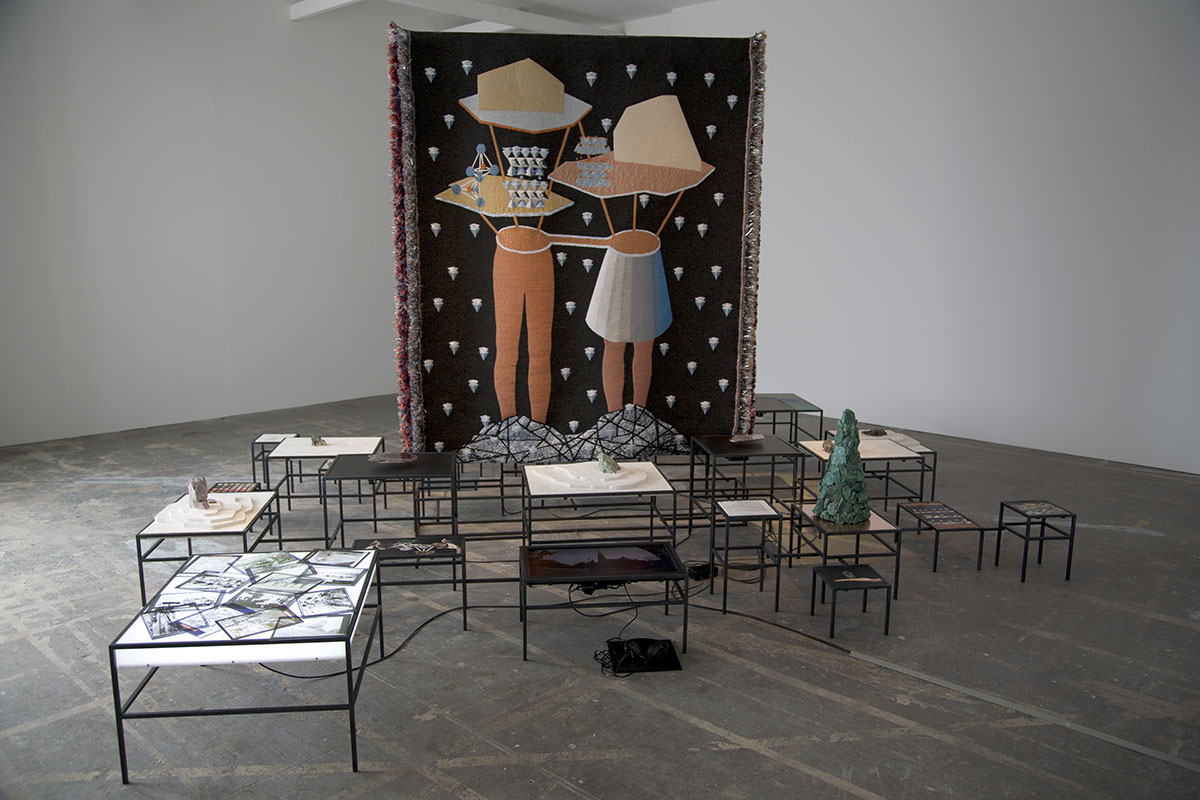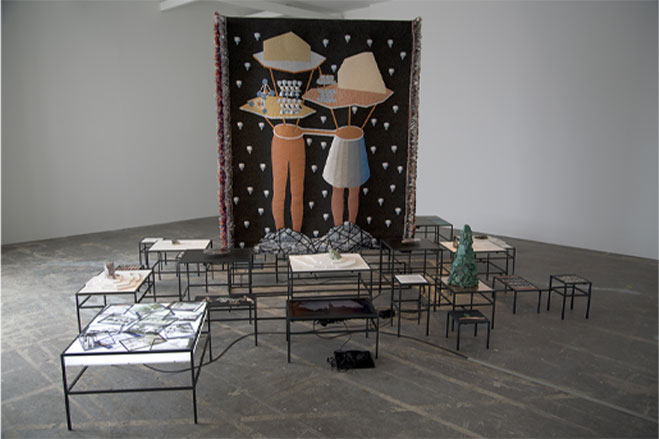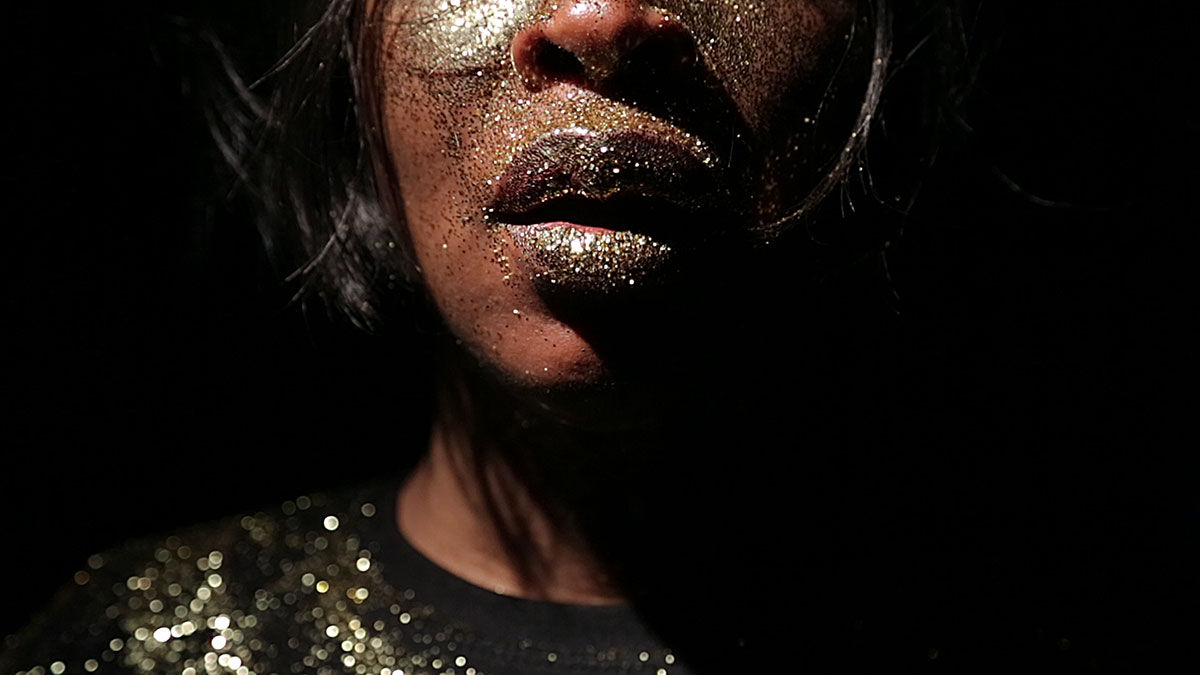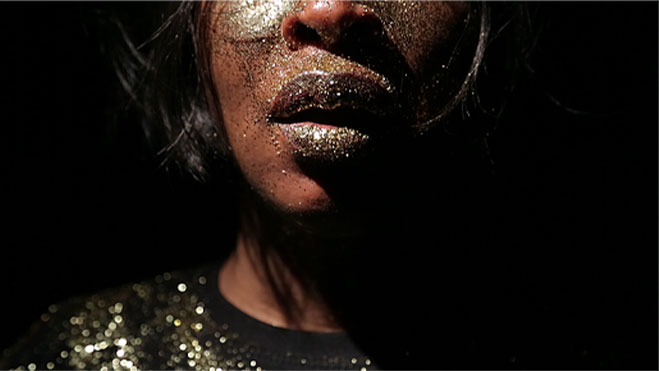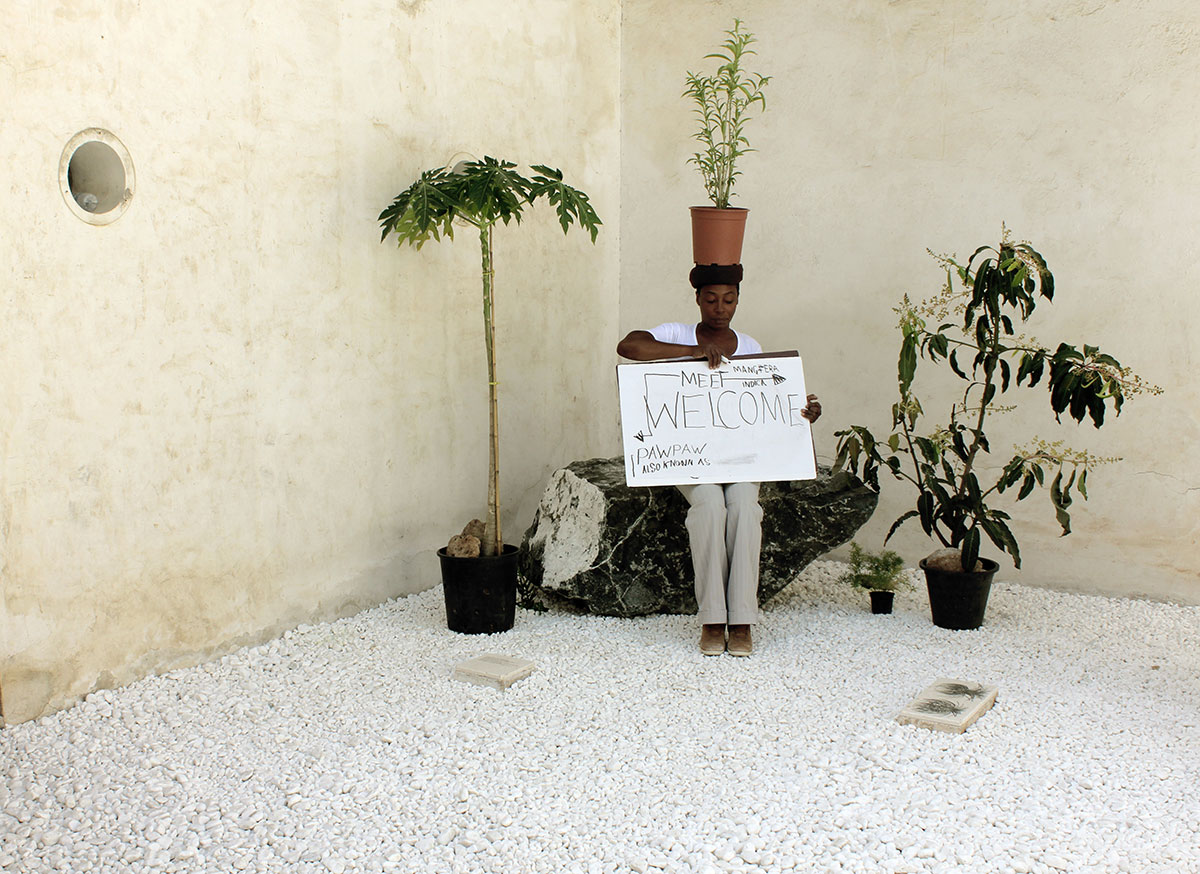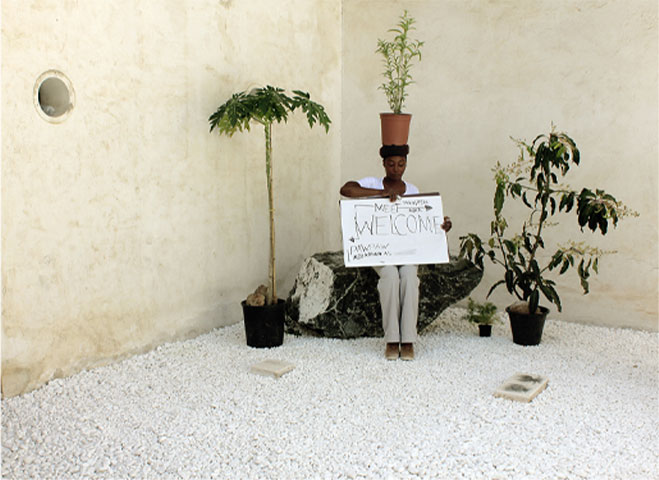The 8th Laureate
Otobong Nkanga
Biography & Jury Statement
The Yanghyun Foundation (Eunyoung Choi, Chief Director), announced Otobong Nkanga as the winner of the 8th Yanghyun Prize on September 7 2015.
She is awarded the 8th Yanghyun Prize as the honorable winner of the year at the award ceremony held at the Main auditorium
of the National Museum of Korea, Seoul, Korea, on Nov 12.
Otobong Nkanga (Kano, Nigeria, 1974) brings together culture and nature. In her work, the landscape is a sounding board for ideas, stories and memories, evoking an awareness
of our connection with natural resources and its challenging histories.
Her installations are imaginative and emotive,
but also earthly: they represent our relationship with the world.
The unity of humans and landscape is a recurring theme, including our annexation of the landscape and our dubious way of exploiting the earth’s natural resources.
By interweaving cultural, historical and socio-political elements with personal stories in a varied yet balanced way, Nkanga creates multi-sensory webs
with her room-filling installations. Nkanga combines a wide variety of media and techniques, from drawing, painting and sculpture, to photography, poetry, textiles
and often video and performance. Her works are rigorous in their conceptual framing yet visually and experientially compelling.
Her drawings for example are typically colourful and whimsical in appearance which draw the viewer in; however, upon closer examination, one sees that their charm belies
deeper political meanings often dealing with violence, aggression and abuse of power.
Her performative works often envelop viewers into sensorial and transformative environments.
Works such as Taste of a Stone (2010) encourage visitors to use all their senses so that the experience is simultaneously intellectual, visual and visceral.
After academic study in her native country Nigeria and later on in France, Nkanga was granted a Master’s degree in performance art at the DasArts institute in Amsterdam, in 2008.
Here she also attended the Rijksakademie (the Royal Academy of Visual Arts).
The jurors were greatly impressed by the intensity, depth and variety of Nkanga's body of work as well as its profoundly beautiful and urgently political character.
Nkanga is an artist whose work encompasses poetic, subtle yet radical components.
Her installations and performances promote self-reflection through storytelling provided sometimes by the artist and, other times, by her audience.
Nkanga’s work awakens consciousness in all of us, active or passive participants of environmental devastation and economic exploitation.
Given the truly international scope of the Yanghyun Prize, the jurors are particularly pleased to present it-for the first time in its eight year history-to an artist raised in Africa.





